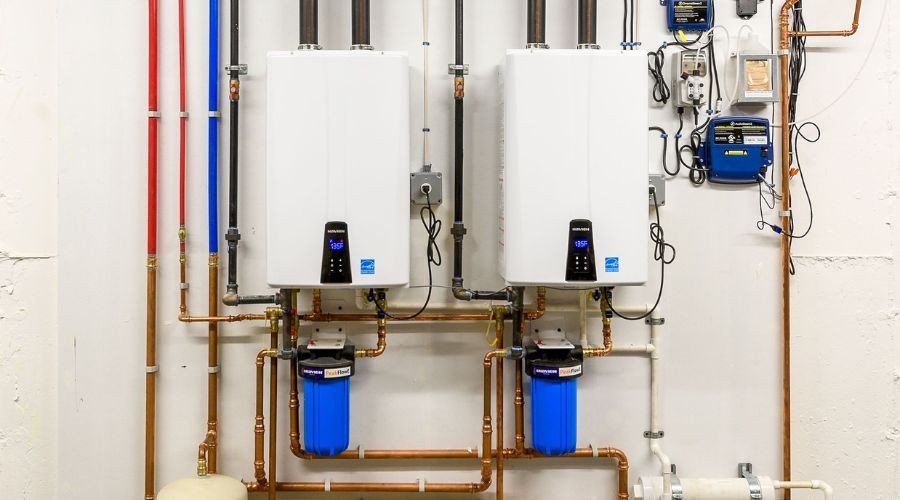Small businesses face unique challenges when it comes to managing office space. Limited budgets, fluctuating team sizes, and the need for flexibility often make traditional office spaces less practical. Leasing a conventional office can involve long-term commitments and significant upfront costs, which can strain smaller companies. In this scenario, managed offices present a valuable alternative.
Managed offices are pre-equipped, ready-to-use workspaces that cater to the needs of growing businesses without the financial burden of traditional setups. This article explores why managed offices are particularly suitable for small businesses and how they help address key operational challenges.
Office Solutions for Small Businesses
For small businesses, choosing the right office space is a critical decision. The type of workspace a company selects can have a direct impact on its operations, team collaboration, and overall productivity. Traditional office spaces often require long-term leases, large deposits, and ongoing expenses related to maintenance, utilities, and office management. These financial commitments can be daunting for small businesses that may not have the resources to cover such costs. Furthermore, the lack of flexibility in traditional leases can hinder growth, as businesses are locked into spaces that may no longer suit their needs.
In recent years, more small businesses have turned to managed offices as a solution. These spaces provide flexibility, cost savings, and the ability to scale up or down as needed. Managed offices are fully serviced, meaning that they come equipped with essential office infrastructure, such as furniture, high-speed internet, utilities, and cleaning services. Businesses pay a single monthly fee that covers all these services, reducing the need to negotiate separate contracts with vendors or manage multiple service providers. This bundled approach not only simplifies office management but also provides cost predictability, which is essential for small businesses.
Managed offices are typically located in prime business areas, offering companies the opportunity to operate in prestigious locations without the associated high costs. For small businesses looking to make a strong impression on clients, investors, or potential partners, having an office in a central location can be a significant advantage. This access to prime real estate at a lower cost makes managed offices an attractive option for small businesses looking to grow without the financial strain of a traditional office lease.
What Makes Managed Offices Ideal for Small Businesses?
Managed offices offer several key benefits that make them particularly well-suited to the needs of small businesses. These benefits go beyond cost savings, addressing other important aspects of running a business, such as flexibility, scalability, and operational efficiency.
- Flexibility in Lease Terms
One of the main reasons managed offices are ideal for small businesses is the flexibility they offer in terms of lease agreements. Unlike traditional office leases, which often require multi-year commitments, managed offices provide short-term leasing options. This allows businesses to rent office spaces Bengaluru or any other city on GoFloaters on a month-to-month basis or for a few months at a time, depending on their needs. For small businesses, this flexibility is crucial, as it allows them to adapt to changing circumstances without being tied to a long-term contract. Whether a business is experiencing rapid growth or is in a transition phase, managed offices allow for quick adjustments without the financial burden of breaking a lease. - Cost Control and Predictability
Managing expenses is a top priority for small businesses, and office space is one of the most significant costs. Traditional offices come with various hidden expenses, such as utilities, maintenance, and repairs, which can quickly add up. Managed offices, on the other hand, provide all-inclusive pricing. The monthly fee covers rent, utilities, internet, cleaning services, and security, giving small businesses a clear understanding of their monthly expenses. This cost predictability allows businesses to manage their budgets more effectively and avoid unexpected expenses that can strain finances. The absence of upfront costs for furnishing or setting up the office is another significant advantage, as businesses can move in and start operating immediately. - Scalable Office Space
Small businesses often experience periods of growth or contraction, depending on market conditions or project demands. Managed offices allow businesses to scale their office space up or down based on their current needs. For instance, a business that starts with a small team can easily expand its workspace as it hires more employees. Conversely, if a business needs to downsize or relocate, managed offices provide the flexibility to do so without the complications of traditional leases. This scalability is essential for small businesses that require an office solution that grows alongside their operations. It eliminates the risk of paying for unused space or needing to relocate frequently. - Ready-to-Use Facilities
Setting up a traditional office space requires time, money, and effort. From purchasing furniture to installing technology infrastructure, the initial setup can be overwhelming for small businesses with limited resources. Managed offices eliminate this hassle by providing fully equipped workspaces. These offices come with desks, chairs, internet access, meeting rooms, and other amenities necessary for day-to-day operations. Small businesses can move into these spaces and start working immediately, saving time and resources. This “ready-to-use” approach allows companies to focus on their core activities rather than spending valuable time managing office logistics. - Access to Prime Business Locations
Location plays a crucial role in a business’s visibility and credibility. Managed offices are typically situated in prime business districts, offering small businesses the opportunity to establish themselves in sought-after locations. Renting a traditional office in a prime location can be prohibitively expensive, especially for small businesses. Managed offices provide a cost-effective way to access these prestigious areas without the high rental fees associated with traditional office leases. Having an office in a central business hub can help small businesses attract clients, partners, and talent, enhancing their brand image and professional credibility. - Simplified Office Management
Running an office involves more than just paying rent. There are numerous operational tasks that need to be managed daily, such as cleaning, maintenance, and security. For small businesses with limited staff, handling these tasks can be time-consuming and divert attention away from core business functions. Managed offices take care of these administrative tasks, allowing businesses to operate in a hassle-free environment. Cleaning services, building security, and maintenance are all included in the monthly fee, providing small businesses with a worry-free office experience. This level of support allows businesses to focus on growth and customer satisfaction, rather than being bogged down by office management duties.
Managed offices allow small businesses to do just that, providing a workspace that can grow alongside the business while reducing the overhead and complexity associated with traditional office management. This makes them an invaluable resource for small businesses looking to succeed in a dynamic and fast-changing world.










